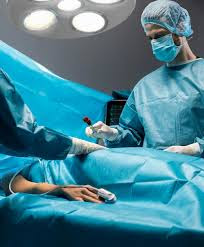The Importance of Early Detection in Stomach and Colon Cancer
Introduction
Cancer remains one of the leading causes of death worldwide, and among its various forms, stomach and colon cancer significantly affect people’s health and quality of life. Both types of cancer often develop silently, showing minimal or no symptoms in their early stages. However, early detection plays a crucial role in successful treatment outcomes and long-term survival. This blog will discuss the importance of early detection in stomach and colon cancer and how it helps in managing these diseases effectively.
Understanding Stomach and Colon Cancer
Stomach cancer, also known as gastric cancer, develops when cancerous cells form in the lining of the stomach. It can spread to other parts of the body if not detected and treated on time. Common risk factors include Helicobacter pylori infection, smoking, certain dietary habits, obesity, and family history.
Colon cancer, or colorectal cancer, occurs in the colon or rectum, which are parts of the digestive system. It usually begins as small non-cancerous polyps that grow over time and may become cancerous if not removed. Factors like age, family history, sedentary lifestyle, and a diet low in fibre contribute to colon cancer risk.
Why Early Detection is Important
Improves Treatment Success Rate
One of the major benefits of early detection is the higher chance of successful treatment. When cancer is detected at an early stage, it is often localised and has not spread to other organs or lymph nodes. This makes treatment options like surgery, chemotherapy, or radiotherapy more effective, increasing the chances of complete recovery.
Reduces Treatment Complexity
Early-stage cancers often require less aggressive treatment compared to advanced stages. For example, if colon cancer is detected when it is still a polyp, it can be removed during a colonoscopy without the need for major surgery or chemotherapy. This reduces treatment time, side effects, and overall medical expenses.
Enhances Survival Rates
Studies show that the survival rates for stomach and colon cancer are significantly higher when diagnosed early. For colon cancer, the five-year survival rate for localised cancer is above 90%, but it drops drastically if detected after spreading to other organs. Similarly, early detection of stomach cancer improves survival chances and quality of life after treatment.
Prevents Cancer Progression
In the case of colon cancer, screening helps detect pre-cancerous polyps before they turn cancerous. Removing these polyps prevents cancer development completely. This preventive aspect of early detection is crucial in reducing cancer incidence and deaths.
Screening Methods for Early Detection
Endoscopy for Stomach Cancer
Endoscopy is one of the most effective diagnostic tools for stomach cancer. It involves inserting a thin tube with a camera through the mouth to view the stomach lining and detect any abnormalities. If suspicious tissue is found, a biopsy can be done during the procedure for confirmation.
Colonoscopy for Colon Cancer
Colonoscopy is the gold standard screening method for colon cancer. It allows the doctor to view the entire colon and rectum, detect polyps, and remove them during the procedure. It is recommended for people above 45 years or earlier for those with a family history of colon cancer.
Fecal Occult Blood Test (FOBT)
This test checks for hidden blood in the stool, which can be a sign of colon cancer. It is a non-invasive screening option and is recommended annually for early detection in people at average risk.
Raising Awareness about Early Detection
Many people ignore mild symptoms like indigestion, abdominal discomfort, unexplained weight loss, or changes in bowel habits, delaying diagnosis until cancer has advanced. Raising awareness about the importance of regular screening and recognising early warning signs can help reduce the burden of stomach and colon cancer.
Conclusion
Early detection of stomach and colon cancer can save lives by enabling timely treatment, improving survival rates, and reducing treatment complications. Regular screening, awareness of risk factors, and prompt consultation with a gastro physician when symptoms arise are essential steps towards effective prevention and management. Investing time in preventive health check-ups today can protect your future health and give you peace of mind for years to come.




Comments
Post a Comment